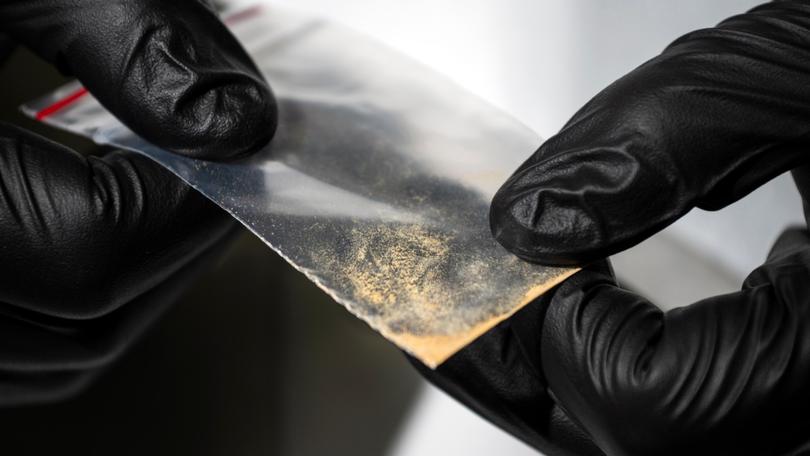Synthetic opioid crisis: Broadmeadows house with four bodies sparks US drug concerns among police
Health experts now fear this week’s grim find could be the start of what Australian authorities have long been dreading.

It was a nightmare discovery that shocked police and horrified family members and loved ones: the bodies of four people found in the early hours of Tuesday morning in a house in northern Melbourne’s Broadmeadows, the youngest of them just 17.
Victorian police are still determining a cause of death for Abdul El Sayed, 17, Michael Hodgkinson, 32, and the 37-year-old man and 42-year-old woman who were found with them in the living room of the Bicknell Court home and said on Friday it could be some weeks until toxicology tests are complete.
However the presence of drug paraphernalia and the haunting words from the uncle of the youngest victim also sparked fears among health experts that this was the start of what Australian authorities have been dreading: the incursion into the country of synthetic opioids.
Sign up to The Nightly's newsletters.
Get the first look at the digital newspaper, curated daily stories and breaking headlines delivered to your inbox.
By continuing you agree to our Terms and Privacy Policy.Australia has so far avoided the worst of the horror drugs these manufactured drugs have wreaked on America, where about 75,000 people died from overdoses last year. Industrial quantities of fentanyl shipped north from the cartel-controlled Mexican drug market is the biggest killer in the US, while in the UK there are growing concerns about a class of drugs called nitazenes, which can be ten to 40 times more fatal than fentanyl and which are also increasingly turning up on our shores.
Victorian Detective Inspector Dean Thomas said police were probing whether these drugs were involved in the Melbourne mass fatality.
“We think that may be the case,” he said.
“We’ve gotta keep an open mind about this. It’s unusual that we find four people deceased in the one property potentially from a drug overdose.
“Until we can confirm that’s the case, it could be anything.”
The soaring synthetic opioid use involving these often China-produced drugs led Australia to sign up to a global coalition on the issue last year. This week a Federal Government contingent including the Australian Federal Police, the Australian Criminal Intelligence Commission, Foreign Affairs and Health department representatives attended a first-of-its-kind global summit in Greece.

AFP Commander Paul Hudson told The Nightly that while she could not comment on the Broadmeadows case, the public were being warned about nitazenes, which are used to “cut” other drugs such as MDMA and cocaine.
“Nitazenes were never approved for any therapeutic purpose due to its adverse effects and high risk of overdose, due to potencies similar to or greater than fentanyl,” she said.
“Nitazene can be presented in a variety of forms, including powders, tablets, nasal sprays, and even vape liquids. It is often used by organised crime as a cheap cutting alternative and then sold as ketamine, heroin, MDMA and counterfeit pharmaceuticals.
“We are warning the community that there is no such thing as a safe dosage when it comes to this drug.
“If you overdose on nitazenes and are taken to hospital, it can be extremely challenging for medical staff to determine what illicit drug you have ingested and provide the treatment required to revive you.
“Dangerous side effects include sedation, drowsiness and respiratory depression, starting with slowed breathing progressing to unconsciousness and death.
“Even small doses of nitazenes can cause overdose and death.”
She said criminals were increasingly shipping nitazenes through mail and selling them on the dark web.
“The AFP has identified an increase in attempted imports of nitazenes, including 37 detections of suspected nitazenes located within postal packages since January, 2023,” she said.
Chris Chistoforou from the Victorian Alcohol and Drug Association said health providers were trying to “get ahead” of synthetic opioids entering the Australian mainstream and that the Broadmeadows deaths were of concern.
He said he couldn’t comment on the deaths until police had determined the cause of death.
“Obviously this matter is still with police,” he said.
“I was speaking to a couple of addiction medicine specialists yesterday, and it’s very, very unusual to see that type of overdose occurring… in terms of four people at the same time.”
“These sort of synthetic opioids generally, are of concern, and thankfully, we’ve avoided the worst of, well, you know the catastrophic, catastrophic impacts of yes, certainly with what’s happening in North America.
“It could be a matter of time though, and that’s something that we need to be prepared for.”

